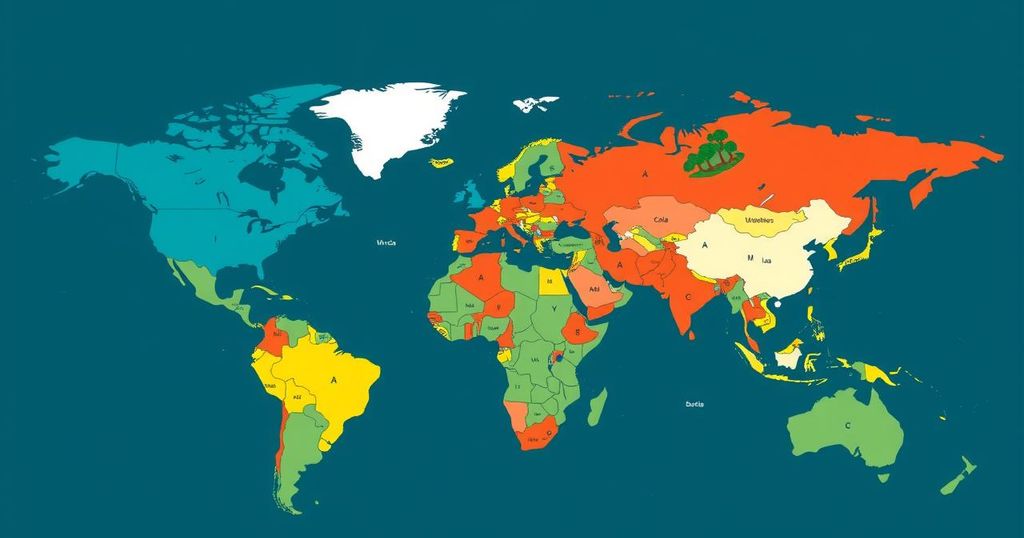Wealthier Nations Begin Paying Poorer Countries for Climate Change Damages
Richer countries are beginning to financially compensate poorer nations for climate-related damages, exemplified by recent funds distributed to individuals affected by Cyclone Freddy in Malawi. This initiative, part of a broader “loss and damage” funding mechanism, aims to assist those suffering from climate disasters while negotiations at COP29 focus on the details of implementation and future funding requirements to address escalating climate impacts.
In the wake of devastating climate events such as Cyclone Freddy, which struck southern Malawi in 2023, efforts to compensate poorer nations for climate damage have begun to manifest. Victims like Christopher Bingala, who lost his home and livelihood, benefited from a new funding initiative aimed at addressing “loss and damage” caused by climate change. With significant contributions pledged from wealthier countries, including the European Union and the United States, relief funds are beginning to flow, although experts warn that the current commitments may be insufficient given the increasing frequency of climate-related disasters.
This program emerged from last year’s international discussions which recognized the disproportionate impact of climate change on low-income nations that contribute minimally to global emissions. With approximately $720 million pledged to assist affected communities, the fund aims to support those who have suffered due to the climate crisis. However, the logistics of distributing these funds and determining eligibility remain ongoing challenges as negotiations continue at the COP29 climate summit in Azerbaijan.
The devastation wrought by Cyclone Freddy underscores the urgent need for this funding model, as it displaced over 650,000 individuals in Malawi alone. Christopher Bingala received a $750 payment, which, while modest, allowed him to rebuild his family’s home and secure a more stable living situation. The payments were administered by GiveDirectly, a nonprofit organization that specializes in direct cash grants to those in dire need, reflecting a shift towards unconditional financial aid for vulnerable populations.
Malawi’s experience is part of a larger pilot initiative aimed at establishing a formal compensation mechanism for loss and damage associated with climate change. Yolande Wright of GiveDirectly highlighted that low-income households often lack adequate protection against natural disasters, facing a stark absence of insurance options. The program’s success could potentially inform broader frameworks designed to alleviate the financial burdens experienced by developing nations in the face of climate crises.
The demand for loss and damage funding is escalating, particularly as severe weather patterns increase. Prime Minister Philip Davis of the Bahamas emphasized the direct correlation between climate-related disasters and rising national debt, drawing attention to the economic strains faced by nations heavily impacted by these events. An effective international response will require not only financial support but also a reevaluation of how aid can be structured to prioritize both immediate recovery and long-term sustainability.
The article discusses the emerging concept of “loss and damage” compensation in the context of climate change, specifically focusing on how wealthier nations are beginning to support poorer countries that are disproportionately affected by climate-related disasters. This support is particularly significant given that many low-income nations contribute little to global greenhouse gas emissions while suffering the severe consequences of climate change, such as catastrophic storms, floods, and droughts. The funding mechanism is currently being negotiated at international climate summits, aiming to provide financial assistance that extends beyond just recovery from disasters to include measures for future preparedness and relocation.
The establishment of a funding mechanism to address loss and damage from climate change represents a critical step toward global equity in the face of climate crises. While initial contributions show promise, much remains to be done to ensure that these funds are distributed effectively and expand in scope to aid in long-term resilience-building strategies. As climate events become increasingly severe and frequent, the necessity for richer countries to acknowledge their responsibility and actively participate in addressing the impact on vulnerable populations is paramount, not just morally but also for global stability.
Original Source: www.mainepublic.org




Post Comment